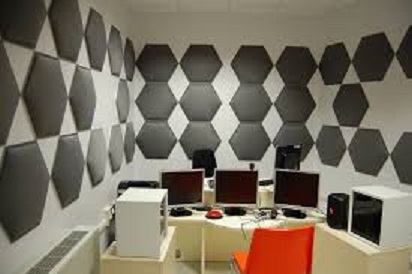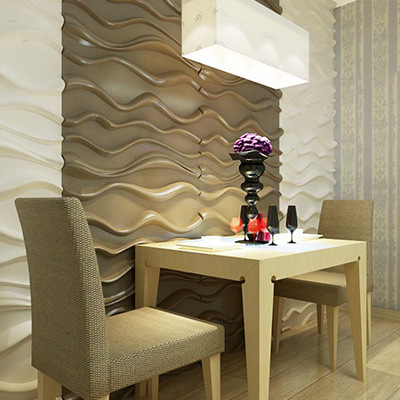How to Soundproof an Apartment
Have you ever thought of how to soundproof an apartment? Do you have trouble with noise entering through your apartment’s walls? Even if you have the finest neighbors, the thinnest walls won’t be able to isolate every sound they produce – especially at night. If that’s the case, you’re probably looking in the right place.

There you are minding your own business and you just simply don’t want to listen in on your neighbors’ conversations. Or you’re just enjoying your peaceful rest day then your neighbor decides that it’s laundry day so a washing machine is slamming against your wall. Worst case scenario – you may be living next to a few students who enjoy partying even on workdays!
All of these problems, and many more, are really irritating when it comes to sharing a wall with noisy neighbors and you may have started to consider solutions. So, let’s look at some different ways to soundproof your apartment, from basic room modifications to small home projects!
Determine the Sound Weak Points of Your Apartment
Because sound waves act as a fluid, every unwanted noise you hear is referred to as a “leaking” sound. Unwanted noise finds its way into your house through holes, gaps, crevices, and fractures at the weakest spots of your apartment or condo.
Where is the source of the noise in your apartment? If the main problem is your front door or a shared bedroom wall, there’s generally no need to soundproof the whole apartment from top to bottom. The first step in soundproofing is to identify your weak points, which might be your walls, doors, or windows. You may plan your soundproofing after you’ve determined these weak spots.
So, How to Soundproof an Apartment?
Apartment Doors
One of the most major sources of noise pollution enters your home through your front door. Through tiny gaps around the door’s border, noise from busy corridors makes its way into your apartment. We mentioned this in our article How to Make a Room Soundproof From Outside Noise.
If you don’t have a strong, hefty door, which is unlikely because most apartment doors are hollow to save money, noise can also reverberate through the door’s core. Here are some things you can do:
1. Install Weatherstripping to Your Door
If you can hear every discussion in the corridor from the comfort of home, there are likely large air gaps surrounding your front door. The noise will be reduced if these leaks are repaired. Sound flows through the air, and any gap that allows light to pass through will allow sound to pass through as well.
Install a door sweep if your apartment door has a huge gap under it. Use a sweep that has a thick rubber strip that fits against the threshold. Dust, insects, and drafts, as well as noise, will be kept out, for sure.! If the remainder of the door doesn’t close snugly against the jambs, use foam weatherstripping to seal the edges and top of the door.
2. Soundproof the Bedroom Door
Gaps under interior doors, like gaps under front doors, let a lot of sounds in as if the door is half-open. Fill the spaces with a draft stopper, which may be bought or made at home. The most simple kinds are those that attach to the door (typically with an elastic band) so that you don’t have to constantly adjust them.
Alternatively, Heavy blackout curtains can be used to add an extra layer of soundproofing over the bedroom door. They help to absorb any noise that seeps through the door while they are closed.
Video: How To Soundproof A Door From Outside Noise In 2021 [10 Super Easy Hacks!]
Apartment Floor
Soundproofing an apartment floor can be accomplished in a variety of ways. We’ve highlighted some of the most effective ways to block out both airborne and structure-borne sound below.
It’s important to note, though, that while not all solutions need construction, some do; so, if you’re renting, speak with your landlord before making any structural changes to your floor.
1. Carpets and Rugs
If your apartment’s floors are constructed of a hard material like tile, laminate, or wood, adding carpets or rugs might be quite beneficial. Because there is nothing to hinder soundwaves from flowing through hard structures, they have an easier time doing so. Carpets and rugs give softness and density to the floor, and as a result, they absorb sounds much better!
If you’re renting, ask your landlord if carpeting is a possibility; you might offer to pay for the installation yourself, or he or she may cover all or a portion of the price for you.
Sound deadening underlayment before carpeting can also be installed to enhance sound absorption. Underlayment, which may be built of a variety of materials including cork, rubber, and foam, gives the flooring greater density and offers a second surface to absorb sound waves.
If your landlord won’t let you put wall-to-wall carpeting in your apartment, consider using area rugs as a soundproofing material instead!
2. Cork Tiles
Consider using cork tiles instead of carpets or area rugs if you don’t like the look of carpeting or rugs. Cork tiles are a kind of on-flooring soundproofing material that may be put directly on top of an existing floor. They’re usually snapped together and laid directly on top of the existing floor.
Cork tiles give density to the floor and work as a superb sound absorber! So, they may readily help in the reduction of unwanted noise transmission. If you want to improve the soundproofing, consider putting a soundproofing mat beneath the cork tiles, similar to the type you’d use beneath an area rug.
3. Interlocking Mat
Give interlocking floor mats a try if you’re seeking the simplest and most cost-effective approach to soundproof your apartment flooring! These mats are produced from a variety of materials, including cork (as indicated above), foam, and even materials that are mixed together, such as foam and rubber or cork and rubber.
Interlocking floor mats are simple to set up. Simply place them on the floor and join them in a puzzle-like fashion. The mats will give the floor more density, which will assist prevent noise transmission. They’ll also provide thermal insulation and provide softness to the floors.
Video: Soundproof a Floor – 8 Cheap & Easy DIY Ways!
Apartment Walls
Do you have a thin wall? Using a wall-to-wall faux built-in to mask noise from the flat next door is a clever approach. The goal is to increase the partition’s bulk. Massive soundproofing materials and objects limit noise transmission by resisting vibration.
1. Mass-Loaded Vinyl
Mass-loaded vinyl is one of the finest materials for insulating impact noise. Vinyl mats, on the other hand, are excellent at reducing airborne noise. You may use them on your thin apartment walls not only as a soundproofing solution, but also to solve a heating problem. We’ve seen a huge difference in temperatures throughout the winter after hanging them on my walls!
So, how do they work, you might wonder? Vinyl mats are large, thick panels made of soundproofing materials that may be placed on the walls to reduce the annoying bass noise or low-frequency noises. Simply put, this is one effective solution to a number of problems! And, Adding soundproofing to existing walls is one of the most common problems they solve.
2. Consider Acoustic Panels
Acoustic panels come in the form of boards or textiles that may be hung on the wall. While most are designed to keep noise from bouncing off hard surfaces, some are particularly good at keeping noise out of a door or window.
This solution can be quite costly. So, you can make your own acoustic paneling for a more affordable alternative. Make a wooden frame and hang a towel over it. Staple the wooden panel and add extra towels to the interior of the frame for better absorption.
These panels can also become room decor depending on the towel pattern and the shape of your wooden frame! Another alternative is to hang them when noise is a problem and take them down when the noise is no longer an issue (how to make DIY acoustic panels on musicianonamission.com).
3. Add Bookshelves
Using heavy books on several bookshelves to create a sound barrier is a fairly successful technique. Shelves and books, when combined, provide a strong barrier through which sound has a hard time passing, thereby acting as a second wall in your apartment. This is an excellent option if your sound leaks are coming from a neighbor’s wall.
If you go with this option, get extra tall bookshelves (at least 5 shelves) and stuff them as much as you can. There are various unique bookshelves on the market, but for maximum sound absorption, a classic hardwood bookshelf is the best option.
Video: How to Soundproof a Wall – 7 Easy DIY Ways!
Other Solutions
Here are other solutions that you can do to add more soundproofing elements to your apartment:
| 1.Add art to the walls | Adding canvas paintings, tapestries, or other softer art, similar to padding the walls, might help soften the space’s rigid surfaces. This will minimize the amount of noise that passes through a wall and prevent sound from reverberating off the walls. |
| 2.Install window inserts | Soundproofing window inserts insulate windows by reducing and absorbing sound. Installing window inserts is a simple and efficient soundproofing solution that won’t break the bank or create any harm, so you won’t need your landlord’s permission. |
| 3.Soundproofing paint | This paint is really thick, and when applied several times with several coats, it may become quite substantial to mask the noise. The result is also really good for insulating low frequencies. So, if you’ve just begun hearing some minor noises through your thin apartment walls and you’re in need of some décor, it could be time to do some rearranging and painting. |
| 4.White noise machines | If all else fails, mask the noise with less distracting noise. These devices are an excellent approach to soundproof not only your apartment but also yourself from outside noise. Simply said, white sound machines emit a sound, called white noise, that causes you to instinctively tune out all other noises and focus on your work or sleep. |
In Conclusion
Ultimately, they are all soundproofing options for your apartment. They don’t take much work, and most of them are very inexpensive. Even if you’re on a shoestring budget, there are still inexpensive solutions to soundproof your apartment, so don’t give up!
We recommend combining several methods for the greatest results, as each one has a distinct manner of reducing sound and inhibits various types of it. These solutions are simple to install and may be completed by yourself, or you can seek the advice of a friend to speed up the process (How To Soundproof an Apartment: 15 Methods on soundproofpanda.com).
There you go, have some peace at your apartment!



